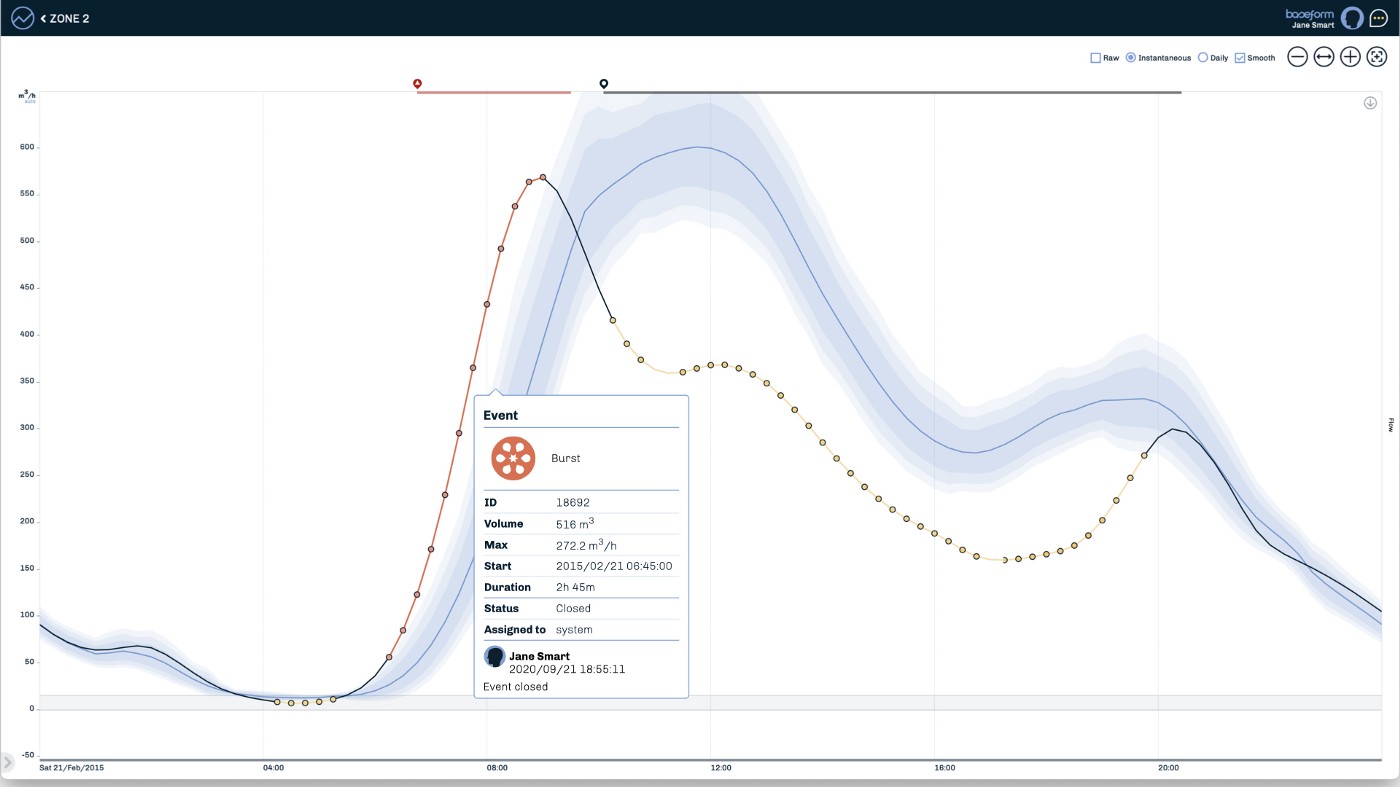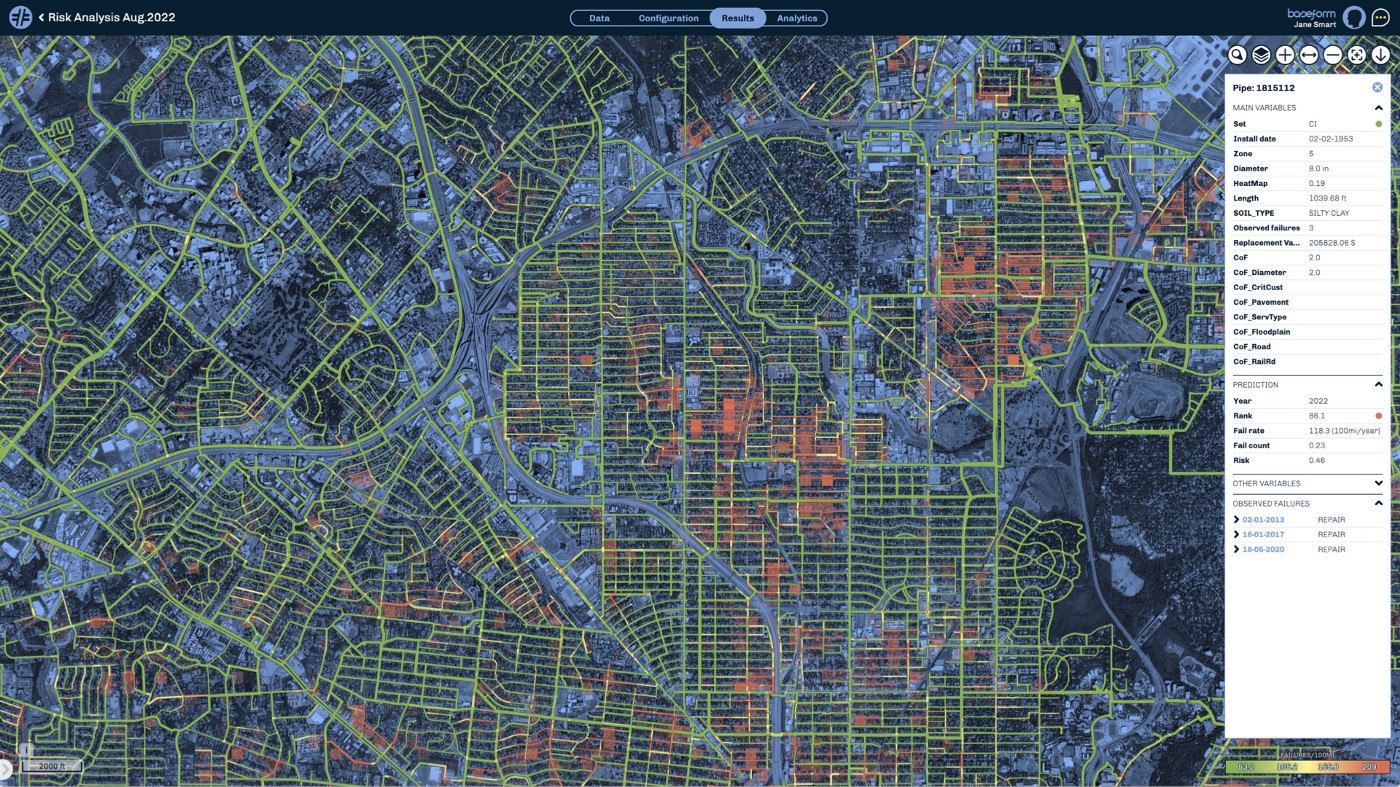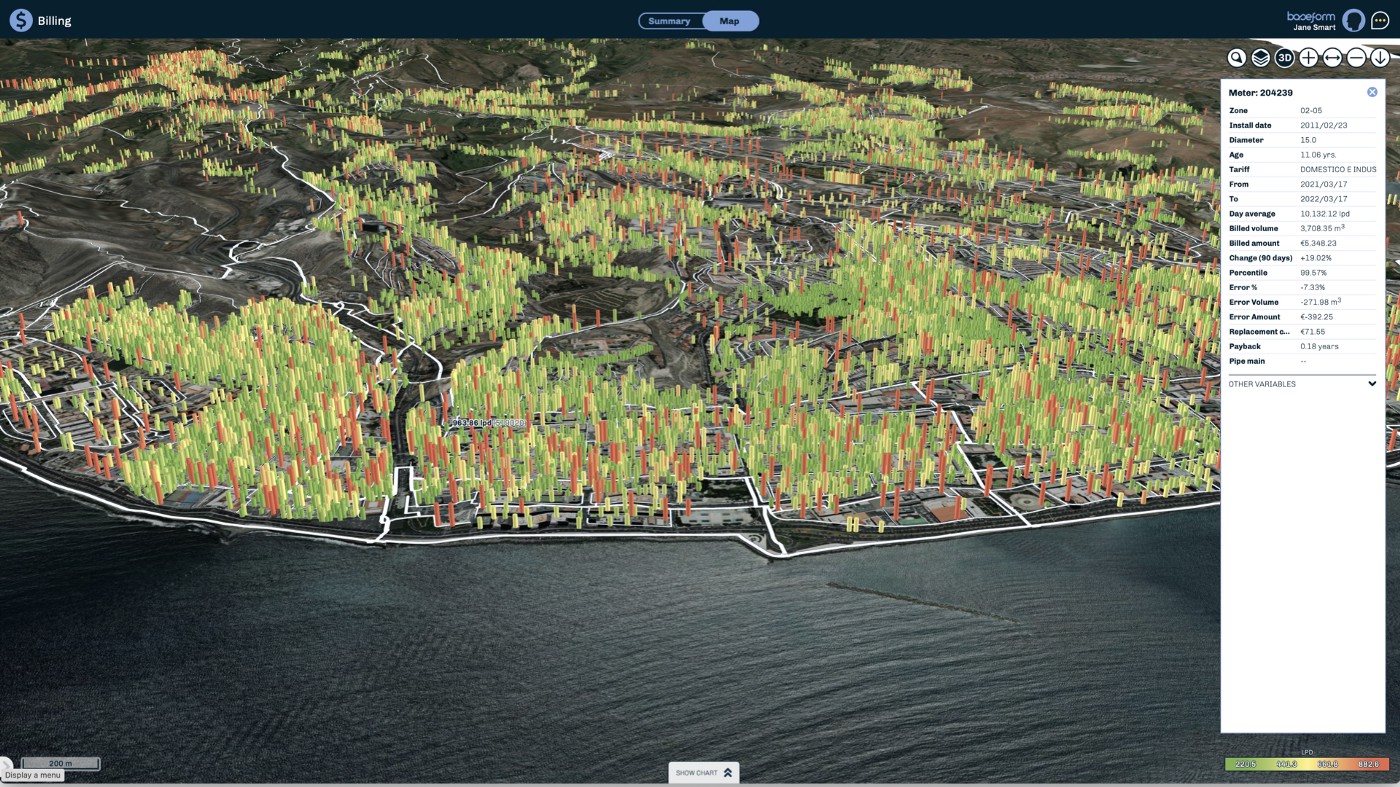Artificial intelligence and water
Every season futuristic keywords flood the general discourse: in recents years we’ve been hearing about water 4.0, water smartness, digital water, digital twins or water-as-a-service.
These terms often lack clear definition and actionable results, and, as they fade away to be replaced by new ones, leave many water managers ever more suspicious about innovation.
Artificial Intelligence and its application to this industry is currently subject to the threat of being part of this trend. At Baseform we have been actually selling an AI-powered cloud software solution for water since 2015. Aiming at demystifying the concept, we’ll briefly discuss what artificial intelligence is and explore three direct outcomes from its application in water utilities.
Artificial intelligence is an idealist and philosophic idea formalized in the 1940–50’s around the notion of being able to create a machine that could imitate human thought and reasoning.
A computer would deserve to be called intelligent if it could deceive a human into believing that it was human.
– Alan Turing, 1950
Artificial intelligence is thus grounded on thinking, learning, inferring and deducting, and to act in solving problems like for example prioritizing tasks to be performed. More recent AI definitions move away from just imitating human behavior and focus on the ability to reason and solve problems in a rational way.
Systems that act like humans > Systems that act rationally
– Artificial Intelligence: A Modern Approach, AI textbook, adopted by over 1500 schools, 2022
1. Detecting water loss events
Water utilities have had SCADA systems since the 1980’s to remotely operate and monitor their networks, namely keeping track of tank levels, pumps, water flows and pressures.
The software connects to this data, which sometimes goes back decades and has minute-by-minute resolution, and learns what the consumption demand pattern is, for the different days of the week, seasons, etc., and predicts normal demand.
Deviations from predicted normal behavior lead the way to automatic event detection of water loss, including pipe bursts, growing leaks, etc., and early to notifications being sent to water managers.
Result: 85% of the total volume of water lost is found in events detected by the software.

2. Predicting failures
Cities use GIS and inventory software to map and describe their infrastructure and work order software to register the actions of its field crews, including repairs of water main breaks or of sewer overflow events.
Baseform software is trained using machine learning methods to generate predictions of which assets are more likely to fail.
Result: renewing the top 1% of water mains identified by the software avoids 24% of the breaks that occur within the next year.

3. Reduce customer metering errors
Billing of water generates huge amounts of consumption data. One area where companies struggle is dealing with the cost vs. benefit of replacing the water meters: on the one hand, as meters age they become less reliable start sub-metering the water use, while on the other hand replacing ahead of time is a waste of money.
Taping into big data, the software estimates the metering error of each household meter and the lost revenue it entails.
Result: 10% of the sub-metering cost is avoided by replacing 1% of meters.

These three results do not derive from optimistic estimates of what might lie ahead — these are factual, empiric, outcomes, coming from many water utilities who have been using the software for years now.
Back to AI’s founder: Alan Turing’s expectation was that by 2000 no one would question the machine’s ability to solve problems better than humans.
I believe that at the end of the century the use of words and general educated opinion will have altered so much that one will be able to speak of machines thinking without expecting to be contradicted.
– Alan Turing, 1947
While AI has in fact delivered its foretold results for water and in many other areas, we are still in the process of educating the general opinion. A huge technology leap has taken place and it is time for humans to think and behave rationally.
[this article was originally published on medium by Diogo Vitorino, Baseform's CTO]